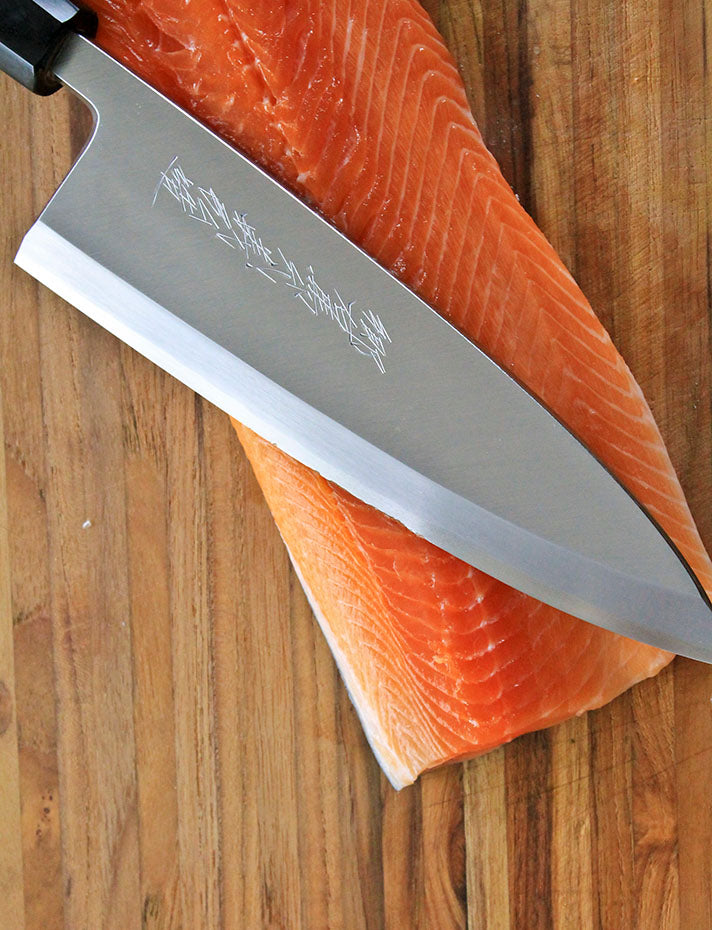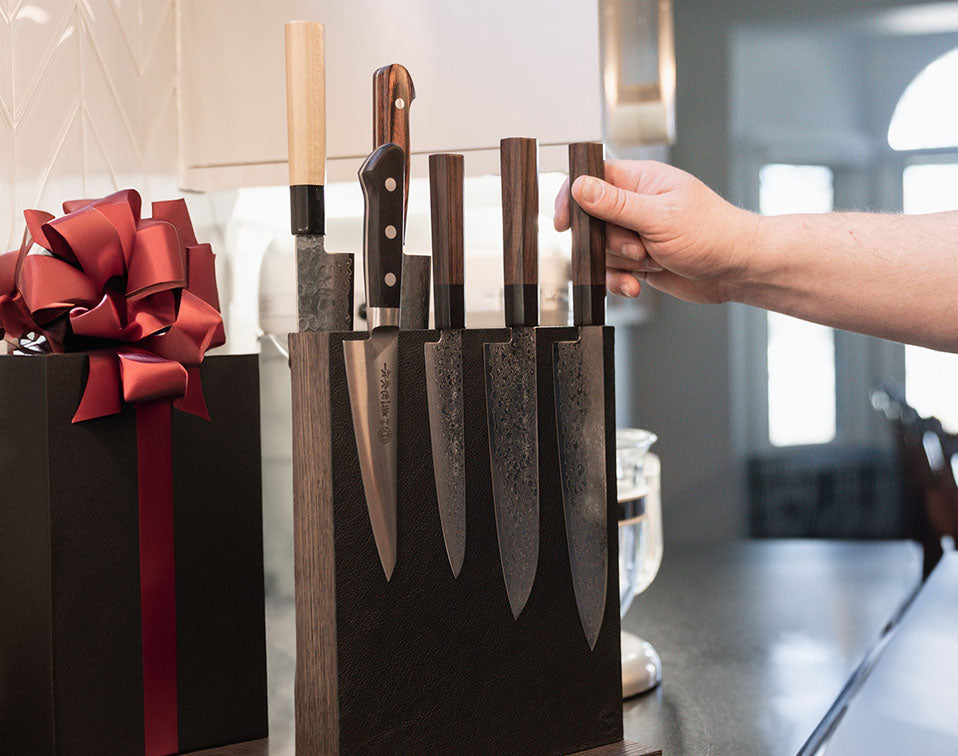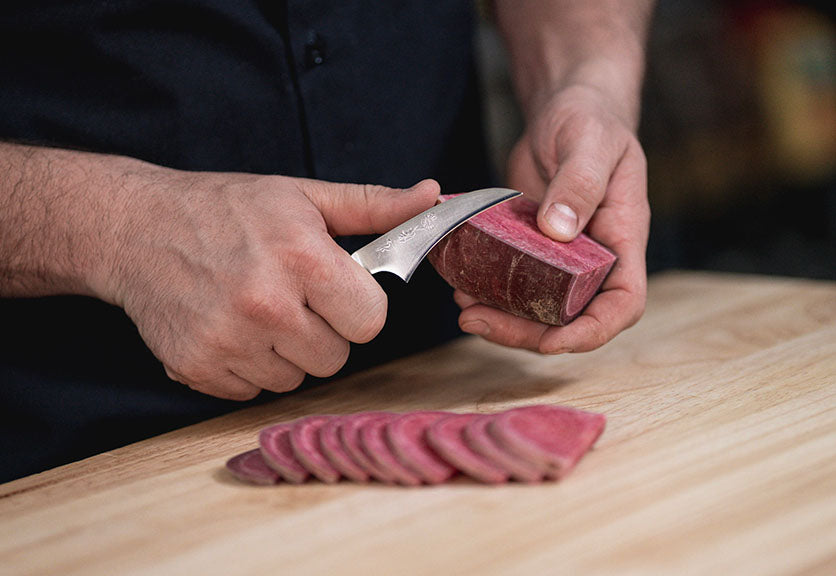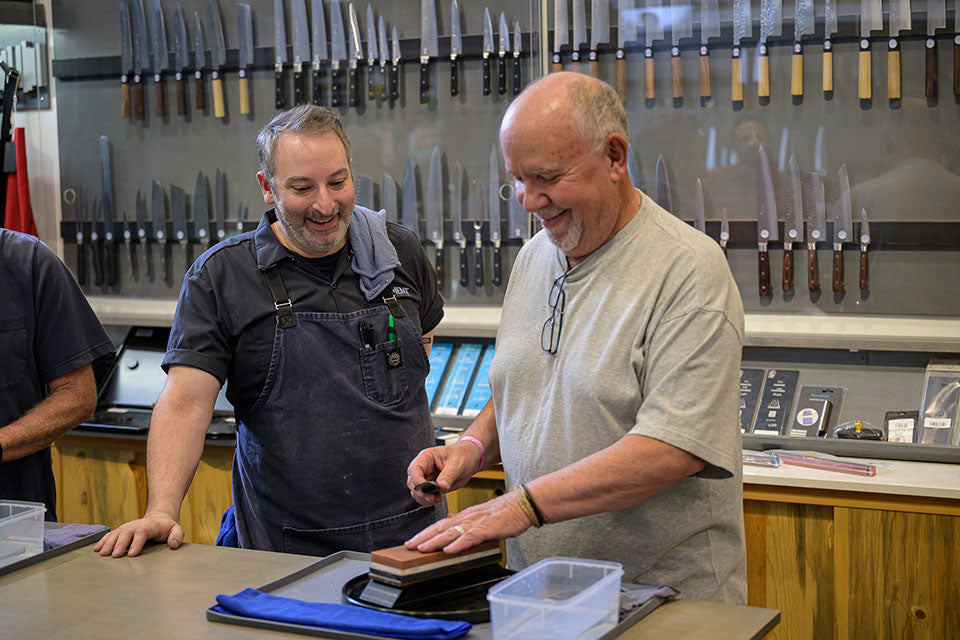
Shop Cutlery
Chef Curated Artisan Knives
Gifts To Cherish For Generations
Gift a slice of excellence to the culinary explorer or aspiring chef in your life with a top-tier knife or kitchen tool, expertly crafted to enhance their kitchen adventures.


All About Knives
Learning Center
About Element Knife Company
Learn more about our story and how Chef Elan found his way to curating the best cutlery in the world.

All Purpose / Versatile
Vegetables
Small Tasks & Utility
Bread
Cheese & Tomato
Tableware
Slicing & Carving
Meat Butchery
Fish Butchery
Pro Sushi Prep
Sushi At Home
Camping
Everyday Carry
Knife Sets
All Knives
Gyuto & Chef Knife
Santoku & Bunka
Nakiri
Petty & Utility
Paring
Serrated
Cheese Knife
Steak Knives
Boning & Fillet
Honesuki
Garasuki
Sujihiki
Funayuki
Yanagi
Takohiki
Fuguhiki
Kiritsuke
Usuba
Deba
Knife Sets
Glestain
Gohumanosuke Yoshihiro
Hokiyama Hamono
Ittetsu
Kanekoma
Kasane Cutlery
Kikuichi Cutlery
Spyderco
Kyocera
Masutani Hamono
Motokyuuchi
Messermeister
Metalwork By Meola
Ryujin
Sakai Takayuki
Steelport Knife Co.
Sukenari
The James Brand
Touroku Sakai
Yoshimune
Takeshi Saji
Imanishi Co., LTD
A. Stravers Cutlery
Bevels, Edges, & Geometry Overview
Double-Bevel Symmetrical & Offset
Ryoba - Asymmetrical Double-Bevel
Single-Bevel
Knife Care Recommendations Dos and Don'ts
- For professional kitchens, we recommend using a softer cutting board made from a polyvinyl acetate. This material resembles the softer texture of wood and will aid in edge retention. Other cutting board materials such as soft polyethylene plastic are suggested as well.
- For home use, length grain soft wood or end-grain hard wood cutting boards are preferred. In commercial kitchens, wood cutting boards are often not allowed by local health departments.
-
Never cut on these surfaces:
- glass
- steel
- hard plastic
- granite
- porcelain
- Corian
- Bamboo cutting boards are not recommended because of how hard the surface is, but are extremely eco-friendly and typically affordable. Although, steel is tough, a sharpened edge is delicate. This delicate edge will dull if used on hard surfaces.
- Always maintain a sharp edge. The more frequently you sharpen your knife the less material you will grind away to bring the edge into a sharpened state. Ultimately, this means you will prolong the life of your knife. It is also safer to work with a sharp knife. A sharp blade also produces cleaner cuts which means better looking and more consistent prep work.
- As mentioned earlier, never hack at coconuts, plastic containers or bones. These products will win when put up against your knife's delicate edge.
- Never use the blade to pry at equipment, jar lids etc. This action, over time, can loosen pins in the handle or promote the blade's tang or bolster to loosen.
- Never put a knife through a dishwasher. The high heat and high water pressure environment will wreak havoc on a knife's construction of bolster and handle. It can also be jostled around which could dull or chip the knife's edge. Harsh and corrosive detergents can also promote rusting.
- Whet stone vs Wet stone. The old-fashioned term for sharpening used to be called "whetting" so, any stone used for sharpening was a "whetstone". Technically, this is accurate, so whether the sharpening stones are diamond, or ceramic, or lubricated with oil or water, they are all ‘whet stones’.
- We recommend ceramic water stones. They make for easy use and cleanup, do not require oil, and are affordable. They are also available in a broad range of grits that can handle everything from repairing to polishing a blade's edge. They are easily flattened, which is important, when sharpening to maintain an even edge. Never sharpen your knife on a stone that is uneven or warped.
- Choosing a selection results in a full page refresh.
Quick links
Learn
Blogs
Cut Deeper
We have even more to offer: follow us on TikTok, Facebook and Instagram to keep up with all of the latest news and to take advantage of discount codes and other offers. Thank you for visiting our site and we look forward to connecting with you!
Store Location:
1701 Platte St. Ste 171
Denver, CO 80202
!
































